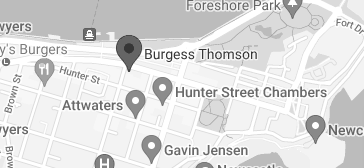Buying an already established businesses can have advantages. Businesses that have a good business history are likely to understand how to run successful operations and it is easier for these businesses to get financial backing from banks. However, established businesses can also come with disadvantages. This can include outstanding contracts that you will have to address, or a poor public image inherited from the previous owner.
Due diligence is the process where a buyer reviews and verifies the information supplied by the seller about the business, usually prior to entering a business sales contract. Through the due diligence review, the buyer should find out as much information about the business as possible, which can then be discussed with a lawyer and accountant. By completing an in-depth look at the running operations, buyers are more possible to determine the value, associated risks, and ongoing potential of the business.
1) Conducting relevant services
- Has a company search been done to verify the vendor?
- Are all ASIC compliance requirements up to date?
- Has a business name search been done to verify ownership of the business trading name?
- Has a domain name search been done to verify ownership of the business domain name?
- Has a Personal Property Security Register Search been done to identify encumbrances on the business and its assets?
- Has a patent search and trademark search been done at IP Australia regarding the Intellectual property of the business?
2) Financial health
A potential buyer needs to independently collect and check the financial information about the business. Make sure you examine the past three to five years of financials including:
- profit and loss statements;
- balance sheets;
- tax returns;
- sales records; and
- the valuation of the business.
Other things to consider
- Have you obtained the last four years’ financial statements of the business?
- Have you obtained information on the business’ capital structure and, where possible, a current list of vested interests (such as shares, options, warrants, etc) and outstanding debt instruments?
- Have you obtained an up-to-date copy of the business’ credit report, if available?
- Has a comparison between the business’ gross profits and the industry trends been done?
- Have you considered the financial projections and major growth drivers of the business in the next four years?
3) Taxation considerations
- Have you obtained the last four years’ tax returns, including supporting schedules and workpapers of the business, such as Capital Allowance schedules, Business Activity Statements, Fringe Benefits Tax returns, etc?
- Have you obtained confirmation that all tax obligations such as income tax, GST, PAYG withholding, stamp duty and payroll tax are up-to-date and paid?
- Have you familiarised yourself with the tax obligations such as PAYG withholding, superannuation, guarantee charge, payroll tax and fringe benefits tax of the entity to be purchased?
- Have you reviewed all correspondence with the ATO and determined whether the business has any private tax rulings, tax elections, amended notices of assessment, etc that may apply?
- Are you aware if the business is currently being audited by the ATO or has been audited in the last four years and, if so, what its outcome was?
- Have you considered the stamp duty implications of the purchase of the business?
- Have you considered whether the purchase of the business will be a supply of a going concern, i.e., GST-free?
4) Employee obligations
- Have you obtained a list of the employees, including their salaries and other entitlements? Are there any key staff who would be imperative to the smooth, continued running of the business?
- Are you aware of all employment conditions, including key workplace agreements, any incentive bonus plans, staff rotation policies, disciplinary procedures, standards of conduct, etc?
- Have all outstanding employee entitlements, such as superannuation guarantee, personal leave, annual leave and long service leave been accounted for?
- Are the Workers Compensation premiums up-to-date? Are there any current, or have there been any Workers Compensation Claims by employees?
Are you comfortable with the current business culture, the level of staff relations and turnover over the last four years?
5) Trading stock
- Does the trading stock include any obsolete stock?
- Has the trading stock been valued at market value?
- Is any stock held on consignment from suppliers?
- Is any stock subject to retention of title Personal Property Security Act registrations?
- Is there any ageing report for stock held?
- Is there a list of work in progress and its value
6) Business premises
- Have you sighted copies of all real estate lease agreements and any relevant documents relating to the premises to confirm the term, rent, rent review and outgoings?
- If the same business premises are to continue, is a lease assignment or new lease available to you?
- If there are improvements to the business premises, has a register been obtained detailing the improvements?
- Are a rental bond and director’s personal guarantees required to be provided under the lease of the premises?
- Have you sighted a copy of the development consent from the local council approving the operation of the business at the premises?
- Have you searched at the local council and other authorities for any outstanding notices in respect to the premises?
- Have you ascertained what licences are required to operate the business at the premises?
7) If you are buying a business through an asset sale
- Has a fixed asset register been obtained detailing all the assets being sold?
- Have you checked the ownership and condition of the assets being sold? Are copies of instruction manuals available?
- Where the assets are leased by the business, have you obtained copies of the leases?
- Are the assets adequately insured until settlement of the purchase?
- Has the purchase price been apportioned across the assets being purchased?
8) If you are buying a business through a sale of units or shares
- Have you obtained a listing of all current shareholders or unitholders?
- If you are purchasing the business through the sale of units, has the trust made a Family Trust Election (FTE)?
- If you are purchasing the business through the sale of shares, has the company made an Interposed Entity Election (IEE)?
Other considerations
- Do you know why the vendor is selling?
- Is there a documented business plan?
- If you are acquiring the business with other people, do you have the necessary agreements in place?
- Are the business operations subject to any government regulations? If so, are all relevant government licences, permits or consents up-to-date?
- Does the business have any pending or ongoing lawsuits, or any recently finalised litigation cases?
- Have you given thought to whether the structure (company, partnership or trust) that the business operates through is suitable for your needs?
- Have you searched the local council and other government agency records to ensure there are no plans or council orders that could disrupt the business or lead to a potential drop in sales?
- If a restrictive covenant, earn-out clause or claw-back clause is included in the purchase contract, have you ascertained the legal and tax implications?
- Have you identified the key customer and supplier contracts and the likely impact a change of ownership might have on these agreements?
- Have you examined current production, distribution, sales and marketing strategies (including websites) of the business and the likely impact of a change of ownership?
- Do you know who the main competitors are?
- Have you ascertained if there have been any claims made on the business insurances or whether insurance cover has been refused?
9) Warning signs
Nevertheless, some warning signs will tell you immediately if a business is not worth buying. Be wary if the seller is:
- Not disclosing the reason for selling the business
- Not providing copies of financial statements, business permit and license, and existing contracts
- Not giving information about the suppliers, contractors, and estate agent
- Involved in court proceedings
- Has a bad credit history
- Persuading you to close the sale right away
The content of this article is intended to provide a general guide to the subject matter. Specialist legal advice should be sought about your specific circumstances.
If you need assistance or advice regarding the above, contact James Thomson at Burgess Thomson on (02) 4929 5602.



